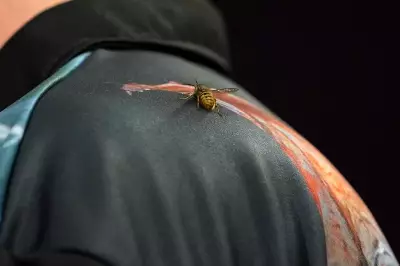
The world of professional golf witnessed a dramatic debut this week as 17-year-old Kai Trump, niece of former US President Donald Trump, stepped onto the LPGA Tour amid a storm of controversy and accusations of preferential treatment.
A Debut Shrouded in Controversy
Kai Trump's professional bow at the ShopRite LPGA Classic has divided opinion across the golfing community. The teenager received a sponsor's exemption to compete, prompting immediate backlash from critics who claim her famous family connections secured the spot ahead of more deserving players.
Social media platforms erupted with comments questioning the legitimacy of her inclusion in the prestigious tournament. Many golf enthusiasts expressed frustration that opportunities were being granted based on family name rather than proven ability.
The Weight of Expectations
Playing under the immense pressure of public scrutiny, the young golfer faced additional challenges beyond the course itself. The shadow of her uncle's polarizing political legacy added an extra layer of intensity to her first professional appearance.
"Every swing, every putt was being watched and judged through a political lens," observed one golf analyst following the tournament proceedings.
Broader Implications for Women's Golf
The controversy raises important questions about access and opportunity in professional sports. While sponsor exemptions have long been part of golf tournaments, this particular case has ignited debate about whether such invitations should be based solely on sporting merit.
Several professional golfers and sports commentators have weighed in on the discussion, with opinions split between those who believe any attention benefits women's golf and others who argue it undermines the sport's competitive integrity.
The Future Ahead
Despite the criticism, Kai Trump's debut represents a significant moment in what could be either a brief appearance or the beginning of a longer professional journey. The golf world now watches closely to see how she navigates the challenges of professional competition while handling the inevitable public scrutiny that comes with her surname.
As the LPGA Tour continues to grow in popularity and competitiveness, this incident highlights the ongoing tension between bringing new audiences to women's golf and maintaining the sport's competitive standards.





